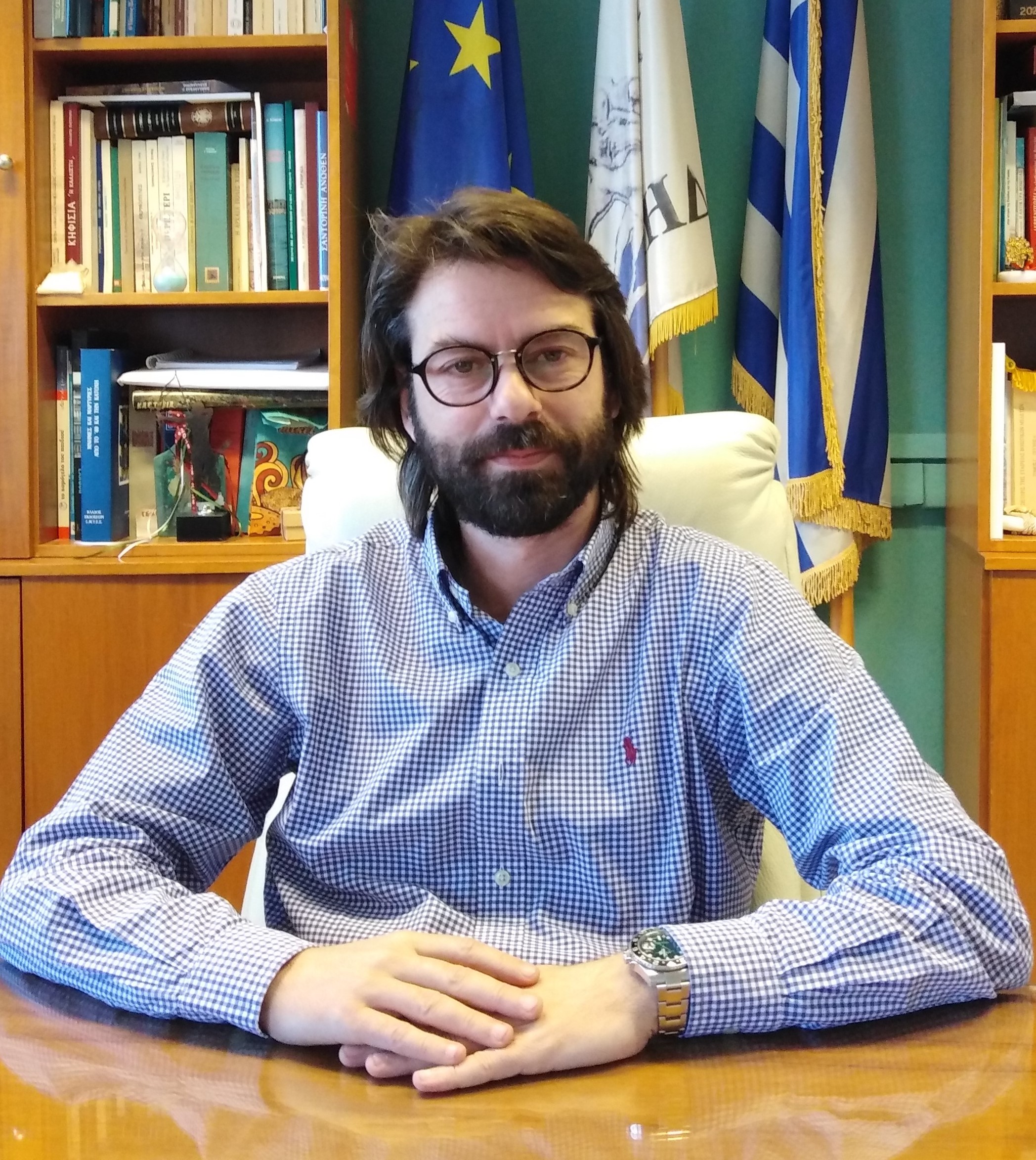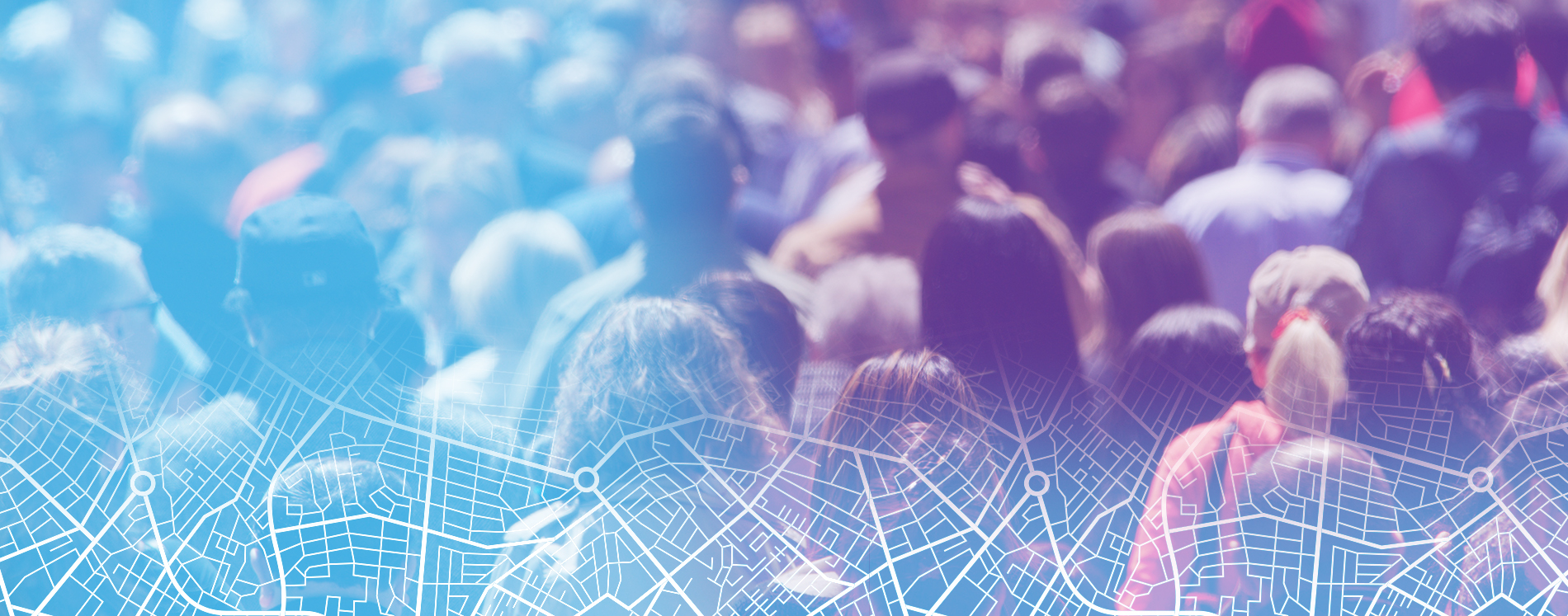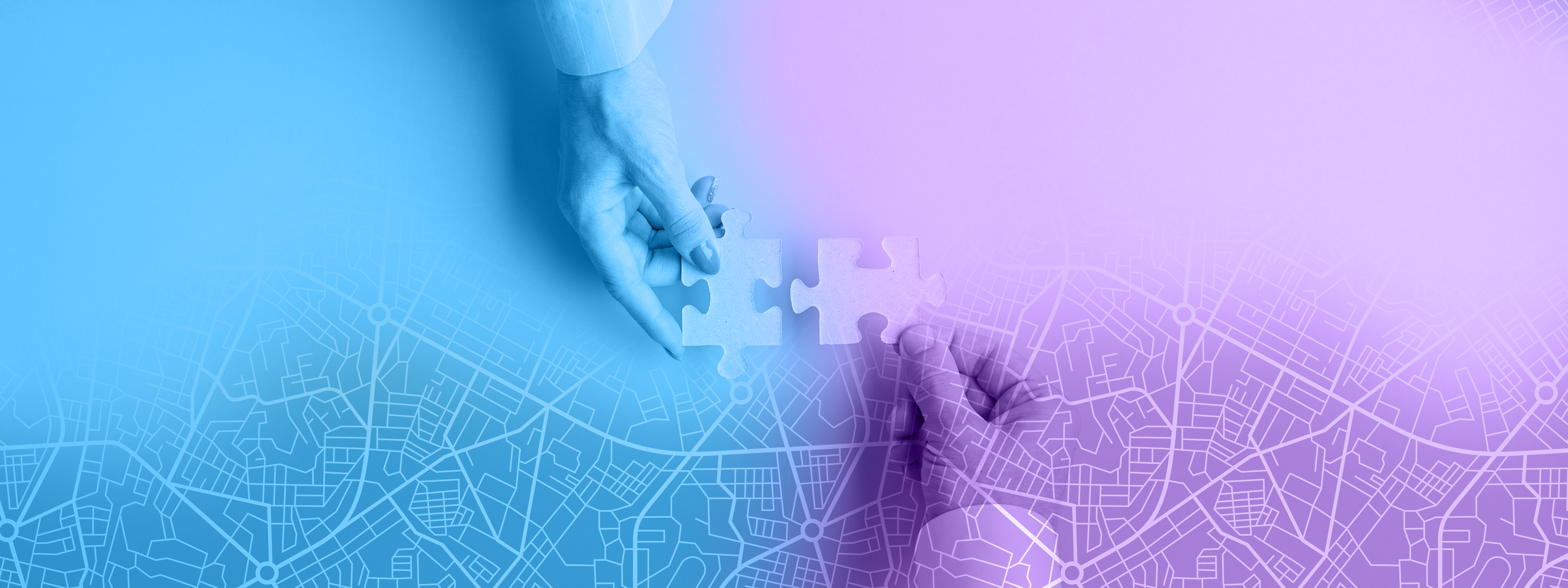“Building inclusive cities is a team sport!”
Levadia is a small Greek municipality, known as a friendly city for newcomers. Currently, they provide accommodation for around 500 refugees and asylum seekers. Together with the Central Union of Municipalities of Greece (KEDE) Levadia is part of IncluCities to improve their integration practices.
Ioannis D. Tagalegas, a medical doctor and former field athlete, became the mayor of Levadia in 2019. Since then, he’s been competing to tackle global issues at local level.
How has Levadia been coping with the COVID-19 pandemic and its consequences? What is the main lesson learned?
It’s not only a confrontation of the global medical community with the virus. It is also a confrontation with the negative imprint this virus is leaving on the society, economy and mental health.
From the very first moment, Levadia stood by its citizens. We have taken various initiatives to limit the spread of the virus and to provide psychological and financial support to vulnerable groups and to help the economy. For instance, by distributing laptops to students we enabled online teaching. We also support entrepreneurs affected by the pandemic and the farmers who sell products on the street markets.
Compared to the remote central administration, the local government as the closest state structure to the citizens knows better the needs on the ground and can immediately respond with actions to help citizens.
However, the most important lesson we have all learned from the pandemic is that the solution to the biggest problems of humanity comes from the man himself. The love for fellow humans is the answer.
Greece has faced many crises in the past decade. How did that affect Levadia and what keeps spirits up?
The global economic crisis, which lasted ten years, left no one unscathed. It hit low-income people the hardest and consequently, poverty suddenly increased.
Unemployment affected all ages and social groups without exception. We organised a series of specialised educational programmes, including on new technologies and business administration to enrich people’s knowledge and skills. We’ve also created online job search platforms. Yet, to solve the unemployment issue, we need a national strategy in place.
The comparative advantage of Levadia is that as a small community it has close and strong ties between citizens. Solidarity and mutual support are a daily practice of the citizens.
Greece was the entry point for hundreds of thousands of migrants who came to Europe in 2015 and 2016. An estimated 1.2 million immigrants lived in Greece in 2017. Statistics changed but many migrants stayed and new people came. What is the current situation?
Indeed, during 2015 with thousands of migrants arriving in the country and many people losing their lives on the way, the world faced the greatest humanitarian crisis of the century.
While the migration flows have decreased, the number of people living in Greek reception centres remains high. The state is making efforts, both to improve their living conditions and to speed up the procedures for asylum seekers or to facilitate the repatriation of persons who wish to do so.
The newcomers to Levadia are currently refugee families who have been granted asylum and await their relocation to another European country.
Levadia was one of the first municipalities in Greece to host Arab-speaking families of asylum seekers. Your town even became a symbol of humanity and hospitality. How did you manage to achieve that in this local community?
The municipality of Levadia responded to the request of the central administration to welcome refugees, because solidarity is the key value of the cultural identity of our town.
In cooperation with the International Organization for Migration we run the HELIOS integration programme. As you know, our municipality participates in the IncluCities project that aims to improve social and economic integration of migrants and refugees in cities.
In cooperation with UNHCR and through the Public Benefit Organisation (K.E.DH.L.) we continue with implementation of the successful accommodation programme for refugees hosted in apartments (ESTIA), co founded by the EU.
When our municipality decided to implement this programme, the financial crisis had not yet passed. However, citizens soon realised that the refugees’ presence in the city posed no threat. The efforts made by the staff members, through cultural events with active participation of refugees, were the beginning of a trusted relationship between citizens, refugees and the local authority. Today, I can say that the acceptance of diversity is ingrained in the inhabitants of the town.
This winter we’ve seen devastating pictures from the refugee centres on Greek islands. Despite migration emergency management being a responsibility of national governments, local authorities on the frontline have to manage it. What went wrong here?
The living conditions in the hot spots that operate on the Greek islands are not at all satisfactory and the number of refugees hosted in camps often exceed capacity. Huge concentration creates intractable problems not only for the refugees and the staff, but also for the citizens and the host municipalities.
The question that arises and requires an immediate answer is: “Why did we get here?” The slow pace of the refugee identification procedure is the major cause of the problem. Only if there was an accelerated identification procedure, could we see a gradual decongestion of the camps. Provided, of course, that there will be no new uncontrolled refugee flows and our European partners will accept the need for the redistribution of refugees within the EU.
I believe migration is a multifaceted and complex problem, which will continue to concern us. Therefore, its solution requires a pan-European and global approach.
The European Commission’s Pact on Migration and Asylum, published last September, has been announced as a fresh start in migration policy – do you think it is addressing the problem in the right way?
After the peak of the migration crisis in 2015 the overwhelmed countries at the EU’s external borders, as well as other Member States started questioning their national asylum systems and the common EU migration policy. Six years later, the EU decision finally came to lay the foundation for managing this complex problem with a more holistic approach.
It is a fact that the new pact is an ambitious strategic plan to strengthen trust between Member States, build effective solidarity between them, promote talents and skills of newcomers and ensure a rapid and effective joint response by determining the basic protocols for dealing with future crises. The pact is offering several initiatives that could strengthen the common European migration policy.
Is this pact addressing the migration in the right way? My answer is yes, but all strategic plans are judged on their implementation. If that is incomplete or ineffective, the plan performs more as a wishlist than a problem-solving tool.
Levadia is part of many integration related projects. As part of IncluCities you want to improve integration practices in collaboration with the Spanish city of Fuenlabrada. What can you learn from your mentor city?
The municipality of Levadia seeks cooperation at national and international level to improve the integration of migrants and refugees and ensure social cohesion and peace.
As part of the Greek Cities Network for Integration we participate in a forum for exchanging views with 12 other cities which also host refugees. Our aim is to adopt good practices, strengthen municipal structures and services, give refugees access to education and empower them to better integrate into the labour market. We also try to raise awareness among citizens, provide information, foster the active involvement of local communities, as well as promote changes at the institutional level.
Our municipality accepted the invitation to participate in the IncluCities to learn how other European cities manage integration. Our mentor, Fuenlabrada is a Mediterranean city that addresses more or less similar issues, yet with more experience in the field of migration. I am sure that Fuenlabrada will offer us feasible proposals for the successful integration of third country nationals in our town and will guide us step-by-step to achieve this. Furthermore, our cooperation in IncluCities might have long-term benefits also beyond the project. Our objective for is to share the acquired knowledge with the Greek Cities Network for Integration.
In your student years you were an athlete, and we hear very often how sport, football in particular, can play an important role in integration. Is sport something we keep forgetting about?
Sport in general, not only football, is an important factor for promoting a noble rivalry and recognising the value of the opponent free from racial, gender, cultural and other discriminations. Team sports rely on the excellent cooperation between their team members to achieve victory, this is an example to be imitated in our societies too. We are all needed in the social arena to win the social peace, eradicate social exclusion and embrace cultural diversity.

